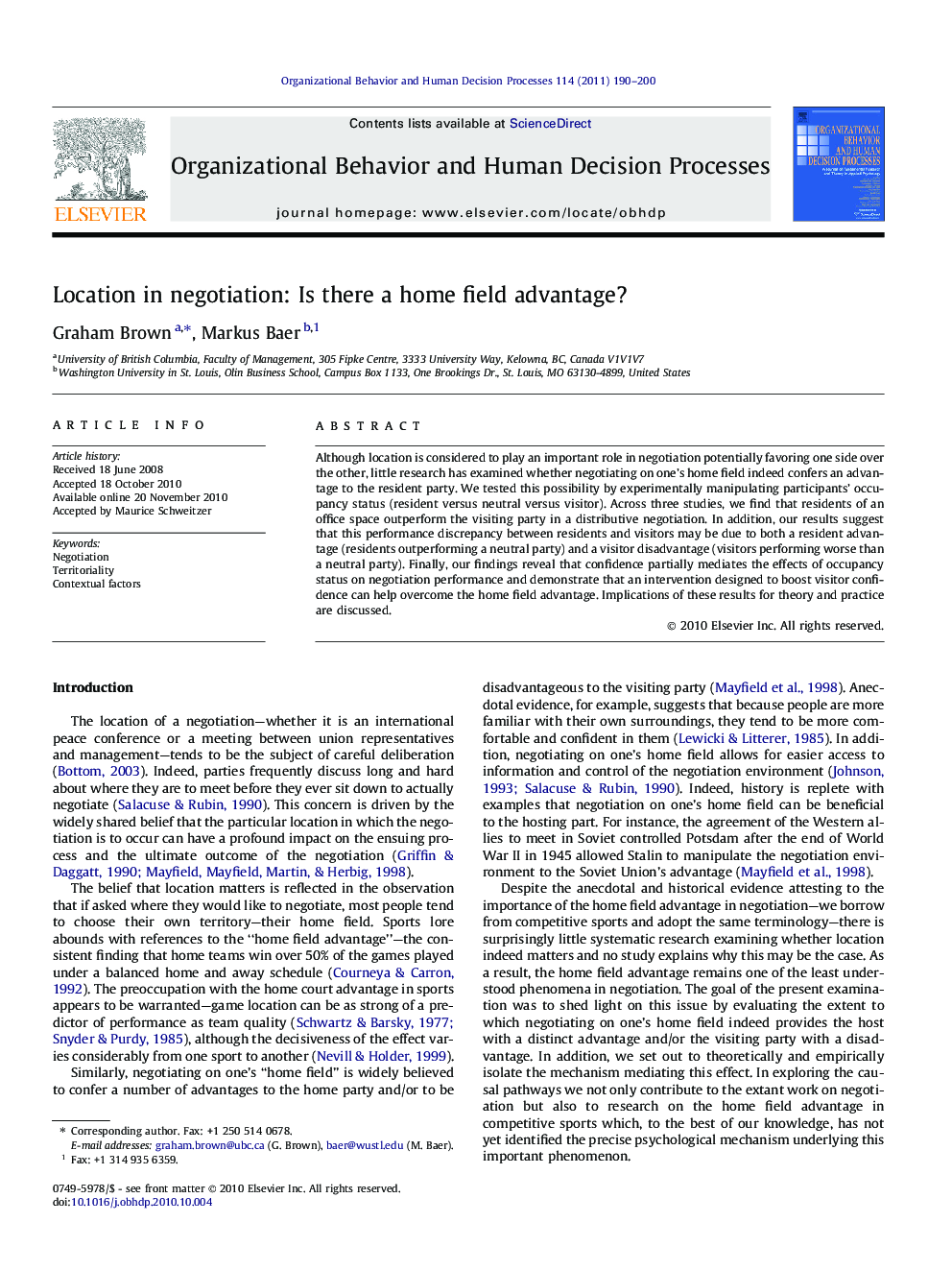| Article ID | Journal | Published Year | Pages | File Type |
|---|---|---|---|---|
| 888758 | Organizational Behavior and Human Decision Processes | 2011 | 11 Pages |
Although location is considered to play an important role in negotiation potentially favoring one side over the other, little research has examined whether negotiating on one’s home field indeed confers an advantage to the resident party. We tested this possibility by experimentally manipulating participants’ occupancy status (resident versus neutral versus visitor). Across three studies, we find that residents of an office space outperform the visiting party in a distributive negotiation. In addition, our results suggest that this performance discrepancy between residents and visitors may be due to both a resident advantage (residents outperforming a neutral party) and a visitor disadvantage (visitors performing worse than a neutral party). Finally, our findings reveal that confidence partially mediates the effects of occupancy status on negotiation performance and demonstrate that an intervention designed to boost visitor confidence can help overcome the home field advantage. Implications of these results for theory and practice are discussed.
